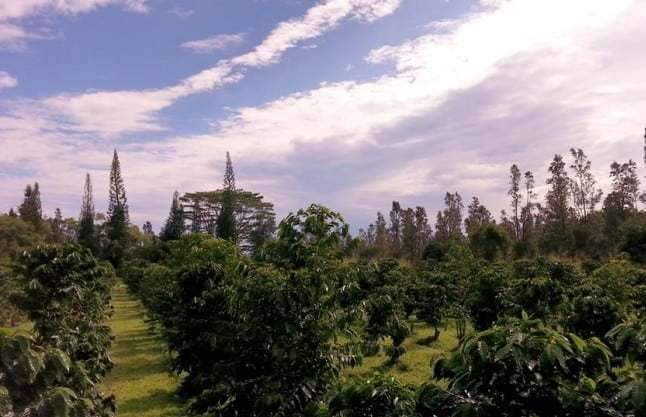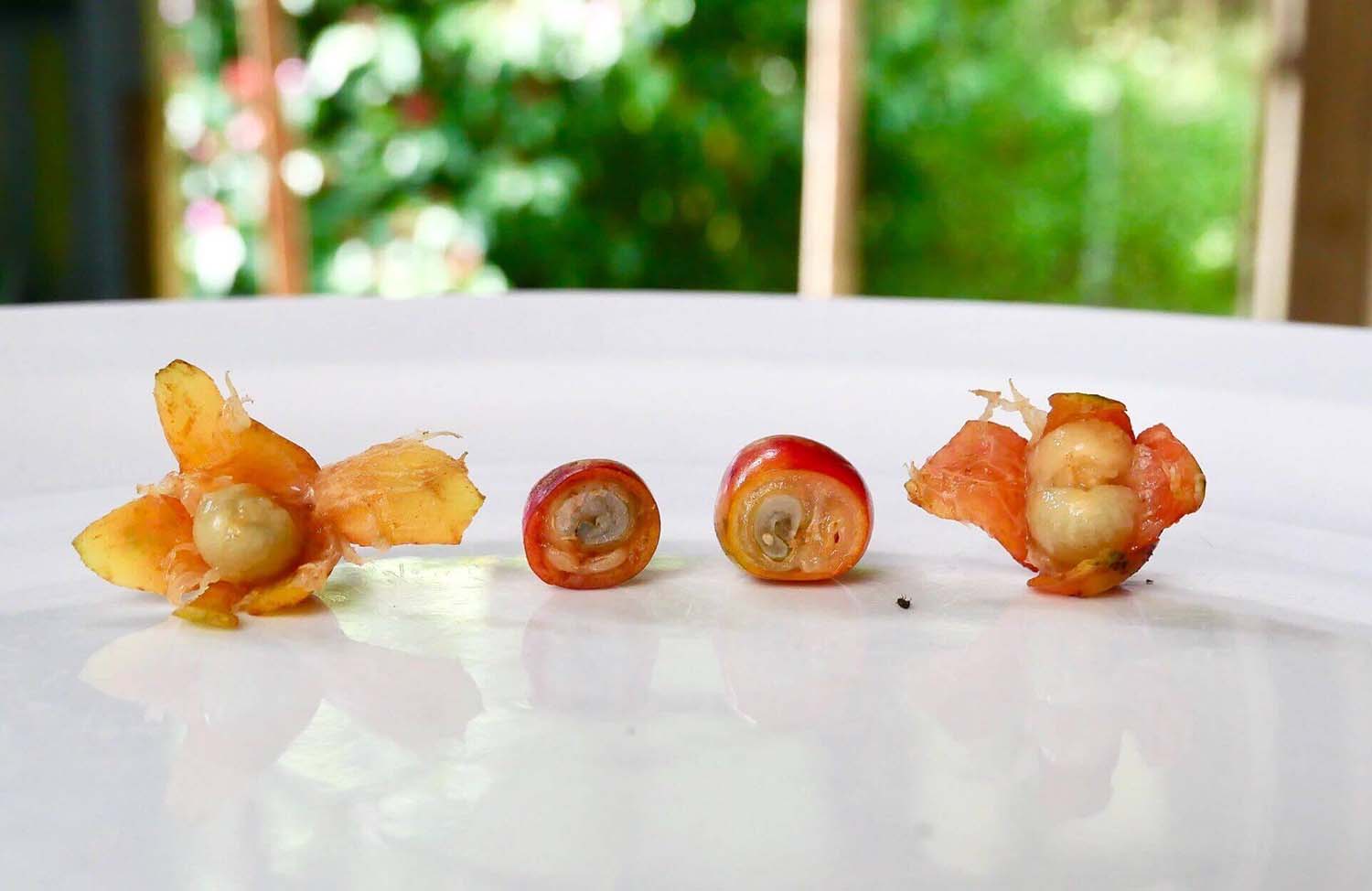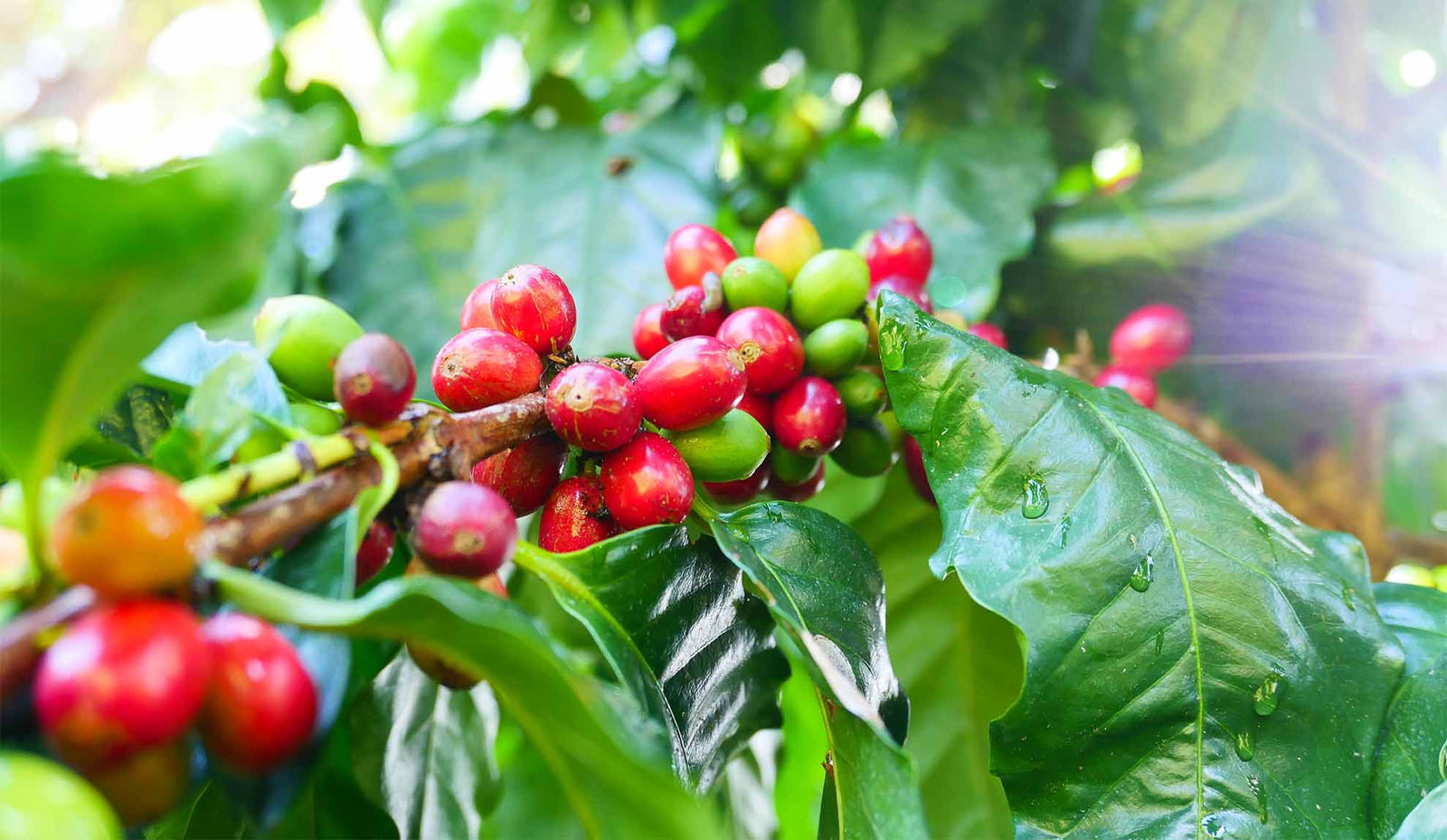It's easily the most common question we hear, "Are your Hawaiian coffees organic?"
And it's a great sign: 5 - 10 years ago, people didn't care as much about how agricultural goods were produced. But this increased awareness, I've noticed, has led to a general tendency for folks to quickly dismiss (or, worse, harshly condemn) products that are not organic. And as a result, too many farmers and salesmen blatantly lie about their products.
In an effort to provide a more nuanced, first-hand perspective on the matter, allow me to offer a simple farmer's story regarding our farming practices. For those who prefer a quick response, here it is: while we don't grow organic coffee, we don't spray poison either. I guess you could call us no-spray.
My agricultural background is in organic vegetable production. My hard knocks introduction to farming was a two-year apprenticeship with a CSA farm in Portland, Oregon: five people, roughly 12 acres of vegetables, and not a single herbicide, fungicide or pesticide used. I learned and experienced the benefits (and challenges) of organic practices.
I do 99% of all the work in our coffee field and I approached our farm with the same holistic, organic method initially. Why wouldn't we want organic coffee? When we moved here in 2010, the previous owner was using synthetic fertilizer, Roundup, malathion, d-CON rat poison and other nasty things around the property. We adamantly opposed doing the same. But organic fertilizers are considerably more expensive, usually 2 - 3 times more than conventional. So we researched alternatives.
Conventional vs. Organic Coffee Cultivation
Then we discovered Korean Natural Farming (KNF), which is a very intensive organic method mostly dependent on homemade fertilizers created from natural ingredients like egg shells, vinegar, brown sugar, plant extractions and vodka (yes, vodka). This seemed like the perfect, low-cost alternative to purchasing fossil-fuel-heavy organic fertilizers. As an experiment, we implemented this system with half of our field and continued to fertilize the other half conventionally. Well, after 8 months, we were heartbroken to see that the KNF side was clearly dying from malnutrition despite our best efforts. Since we aren't independently wealthy and we genuinely depend on our production as our livelihood, we felt very pressured to use conventional fertilizer. This was an immensely difficult relinquishment. To act in opposition to deeply held values and principles is beyond challenging, especially when that action becomes the centerpiece of your life.
The natural follow-up question: "Can't you just use organic fertilizer?" The answer to this question is the reason KNF failed. We live in a place without soil. Our entire neighborhood sits atop pahoehoe lava. Our coffee literally makes its home in volcanic rock. We also have heavy rainfall ranging from 100" - 200" annually, which leaches nutrients from the ground very quickly. In these conditions, there isn't enough microbial life in the ground to break down organic elements fast enough to make them available to the plants. How do we know? We tried. And failed. Organic fertilizer worked better than KNF. But when compared to the conventional side of the field, the organic side continued to decline rapidly. So we were faced with the choice of abandoning our principles or killing our coffee field, losing our crop, going broke and abandoning our entire life in Hawaii -- all within the first year. What would you have done?
Just in case you have more burning curiosities, I'll answer the common follow-up question: "Can't you bring in dirt/compost/mulch to slow nutrient leaching and THEN use organic fertilizer?" Yes but no. There are four problems with this solution: time, money, labor and a short carport. First, the easiest way to bring in dirt is via huge dump trucks. But they actually can't drive into our place because we have a carport that's too short for all dump trucks. Bummer. What about a truck and trailer? Yep, those are great and work wonders. Do we have money to buy them? Maybe, but owning equipment means a larger upfront cost and maintenance fees/time. Do we have money to pay for someone else to drive their truck and trailer? Perhaps. But then the cost goes up. And we're not talking about a few loads. If we used 30-yard dump trucks (which can't fit) it would take 40 loads to put an 8" layer of dirt/mulch/compost across two acres. Each load would cost anywhere between $500 to $1000. Now imagine a truck and trailer trying that job and you see how quickly time, money and labor add up. And don't forget about actually spreading the dirt/mulch/compost after it's in the field. In short, this approach is too expensive and labor intensive for us to execute.
As a result, our solution has been a bit of conventional and a bit of organic. We implement a dozen sheep and about 30 chickens into our system in order to add manure to the field and decrease our fertilizer needs. It's not our ideal solution but it works for now. And if we can be successful enough in the future to afford turning our farm into an organic coffee operation, that would be fantastic.
Until then, I urge you to sincerely consider the very real, tangible reasons why a farmer may not be in a position to cultivate organically, even if he/she really wants to.
All the best,
Brandon




